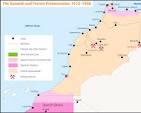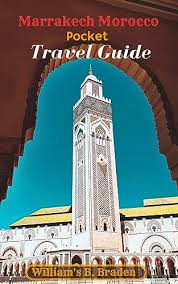The Colonial History of Morocco
Located at the crossroads of Africa and Europe, Morocco has a complex colonial past that has significantly shaped its present-day identity. The country’s history is marked by the influence of various European powers seeking to establish control and exploit its resources.
Portuguese Presence
The colonial era in Morocco began with the arrival of the Portuguese in the 15th century. Portugal established several coastal enclaves, including Ceuta and Tangier, as strategic outposts for trade and military purposes. However, these territories were later contested by other European powers vying for dominance in the region.
Spanish and French Rule
In the 19th and early 20th centuries, both Spain and France intensified their efforts to colonise Morocco. The Treaty of Fez in 1912 effectively divided the country into French and Spanish protectorates, with France controlling most of the territory and Spain governing parts of the north.
French Protectorate
Under French rule, Morocco underwent significant political, economic, and social changes. The French implemented modern infrastructure projects, introduced new legal systems, and established control over key industries such as mining and agriculture. However, this period was also marked by widespread resistance from Moroccans seeking independence.
Spanish Influence
Meanwhile, Spanish-controlled areas in northern Morocco experienced a distinct colonial influence. Spanish authorities focused on developing trade networks and fortifying coastal cities like Melilla and Tetouan. The Spanish presence left a lasting impact on the culture and architecture of these regions.
Independence and Legacy
Morocco regained its independence from colonial powers in 1956 following years of struggle and negotiation. The legacy of colonialism continues to influence Moroccan society today, shaping political structures, cultural practices, and economic policies.
While remnants of colonial rule are visible in Moroccan cities through architectural styles and urban planning, the country has also preserved its rich heritage through a renewed sense of national identity. Through ongoing efforts to promote cultural diversity and economic development, Morocco is forging a path towards a future that honours its past while embracing modernity.
Understanding Morocco’s Colonial Past: Six Key Insights on French and Spanish Rule
- Morocco was a French and Spanish protectorate from 1912 to 1956.
- The Treaty of Fez in 1912 divided Morocco into French and Spanish zones.
- Colonial powers exploited Morocco’s resources, leading to economic hardship for the local population.
- Resistance movements, such as the Rif War (1920-1926), fought against colonial rule in Morocco.
- Independence was finally achieved in 1956 after years of struggle against colonial powers.
- The legacy of colonialism continues to impact Moroccan society and politics today.
Morocco was a French and Spanish protectorate from 1912 to 1956.
During the period from 1912 to 1956, Morocco was under the dual control of France and Spain as a protectorate. This era marked a significant chapter in Moroccan history, characterized by the imposition of colonial rule and the introduction of foreign governance systems. French and Spanish influences during this time left a lasting impact on the country’s political, social, and economic landscape, shaping its path towards eventual independence in 1956. The legacy of this colonial period continues to shape modern-day Morocco, reflecting a complex interplay of historical narratives and cultural dynamics.
The Treaty of Fez in 1912 divided Morocco into French and Spanish zones.
The Treaty of Fez, signed in 1912, marked a pivotal moment in the colonial history of Morocco by dividing the country into French and Spanish zones of influence. This agreement effectively established French and Spanish protectorates over different regions of Morocco, leading to significant political and social changes within the country. The treaty’s impact resonated throughout the subsequent decades, shaping the course of Moroccan history and paving the way for a complex colonial legacy that continues to influence the nation’s development today.
Colonial powers exploited Morocco’s resources, leading to economic hardship for the local population.
During the colonial period, various European powers exploited Morocco’s abundant resources, resulting in economic hardship for the local population. Natural riches such as minerals, agriculture, and strategic coastal locations were often exploited for the benefit of the colonial powers, leading to unequal distribution of wealth and resources within the country. This economic exploitation not only hindered the development of local industries but also deepened socio-economic disparities among Moroccans, laying the foundation for long-lasting repercussions on the nation’s economy and social fabric.
Resistance movements, such as the Rif War (1920-1926), fought against colonial rule in Morocco.
Resistance movements, such as the Rif War (1920-1926), played a crucial role in challenging colonial rule in Morocco. The Rif War, led by the Berber leader Abd el-Krim, was a significant uprising against Spanish and French forces seeking to control the region. The fierce resistance put up by the Rif tribes highlighted the determination of Moroccans to defend their independence and sovereignty. This conflict not only showcased the strength of indigenous resistance but also drew international attention to the injustices of colonial occupation in Morocco.
Independence was finally achieved in 1956 after years of struggle against colonial powers.
Independence from colonial rule was a hard-won victory for Morocco, culminating in the year 1956 after enduring years of resistance and perseverance against foreign dominion. The struggle for self-determination and sovereignty against colonial powers marked a pivotal moment in Moroccan history, shaping the nation’s identity and setting the stage for a new era of autonomy and national pride.
The legacy of colonialism continues to impact Moroccan society and politics today.
The enduring legacy of colonialism continues to exert a profound influence on Moroccan society and politics in the present day. The historical imprint left by past European powers has shaped the country’s socio-political landscape, influencing governance structures, cultural dynamics, and economic policies. The echoes of colonial rule resonate through various aspects of Moroccan life, highlighting the complex interplay between tradition and modernity as the nation navigates its path towards progress and self-determination.



